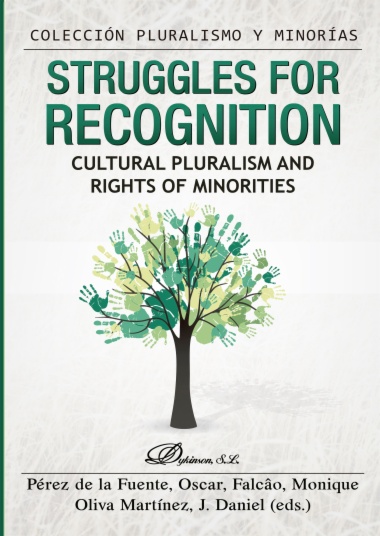Over the past decades, an increasingly influential Political Philosophy approach has been seen to defend issues relating to cultural injustices. The daily struggles arising from political agendas within different societies confirm this. This perspective can be summarised using the Hegelian expression “struggle for recognition”, and it is this expression that underpins the current position of minorities members and their defenders. This means that misrecognition, disrespect, and humiliation form the base of (cultural) injustices and must be avoided. Minorities are a fundamental part of democratic societies, but their rights have not always been respected. Inmigrants are currently the object of xenophobic campaigns. Rome people, the European minority, face additional difficulties, which results in them being key players in cases of indiret discrimination. The distribution of territorial power and the situation of national minorities have been causes of different political problems.“Who am I? Where do I belong?” are questions asking for indentity. Some people argue these should be relevant issues when applying the criminal law, circle of moral incumbency to cover animals -non humans-, arguing that they of life that involves their survival as a whole. Those groups are faced with members and their defenders.This publication is part of the “New Challenges of Law” project. Action agreement UC3M-CAM excellence of the University teaching staff (V Regional Plan for scientific research and technological innovation).
- Cover
- Title page
- Copyright page
- Index
- On the struggles for recognition
- The Editors
- Section I: Minorities and immigration
- The persistent oppression of Roma in the legal field: from outlaws to epistemic violence, Marc H. VALLÉS & Ida NAFSTAD
- The tightrope of legitimacy and illegality in the political mobilisation of migrants in São Paulo, Augusto Veloso leão
- Children and digital rights effectiveness. Some reflections about the right to access to the internet, Stefania Attolini
- Section II: Nationalism, recognition and free speech
- A comparative analysis of the different paradigms of nationalism and the nation, Guillermo Reyes pascual
- Mechanisms of national minority recognition in post-Soviet states. Cases of Kazakhstan, Lithuania, and Russia, Aziz Berdiqulov
- The cimbrians and their “Law”: A possibility of Langobard Laws continuum, Gustavo Baretieri
- On recognition, Oscar Pérez de la Fuente
- “On-Going Blasphemy” or Pussy Riot casus echo via argumentation worlds, Tatiana Barandova
- Section III: Animal rights and intercultural application of law
- Cultural diversity under the scope of criminal Law: The Colombian case, Olga Lucía Abello Restrepo
- About the need to incorporate an intercultural perspective in the application of pretrial detention: Notes from the Baguazo case, Vanessa Cuentas portocarrero
- Analysis of nonhuman animals’ status in urban areas through the biocentric paradigm: institutionalizing a representative mechanism to provide recognition of the animal as a subject of the city, Giselle Maria Custódio Cardoso, Emerson Affonso da Costa moura
- Animals as minorities. Contributions from civil society to the effectiveness of rights, Monique Falcão, Nattiele Gomes, Thiago Prado, Julia Roehrs Canto
- Section IV: Indigenous law and indigenous rights Peoples and persons in the UNDRIP, Dwight Newman
- A critical analysis of the proposed amendment to the Brazilian Constitution nº 215/2000: Demarcation of indigenous lands, Pedro C. S. Avzaradel, Camila Graça Camatta
- The responsibility of the States in the current situation of women’s rights in indigenous normative systems in Latin America, María-Cruz La Chica
- Ethnic minorities in Brazil.Some conceptual aspects, Monique Falcão
- Food security of indigenous peoples: Introduction to the right to cultural food as a legal obligation., Chiaretta Giordano
- Section V: Indigenous peoples and natural resources
- Learning from the indigenous Law: The core values of inclusion, coexistence and resilience, Valentina De Gregorio, Giulia Parola, Arianna Porrone, Margherita Paola Poto, Apostolos Tsiouvalas
- Submarine tailings disposal in Arctic indigenous waters: A human rights perspective on Nussir mine’s impacts on the Sámi use of Repparfjord, Norway., Apostolos Tsiouvalas
- CV of the participants

